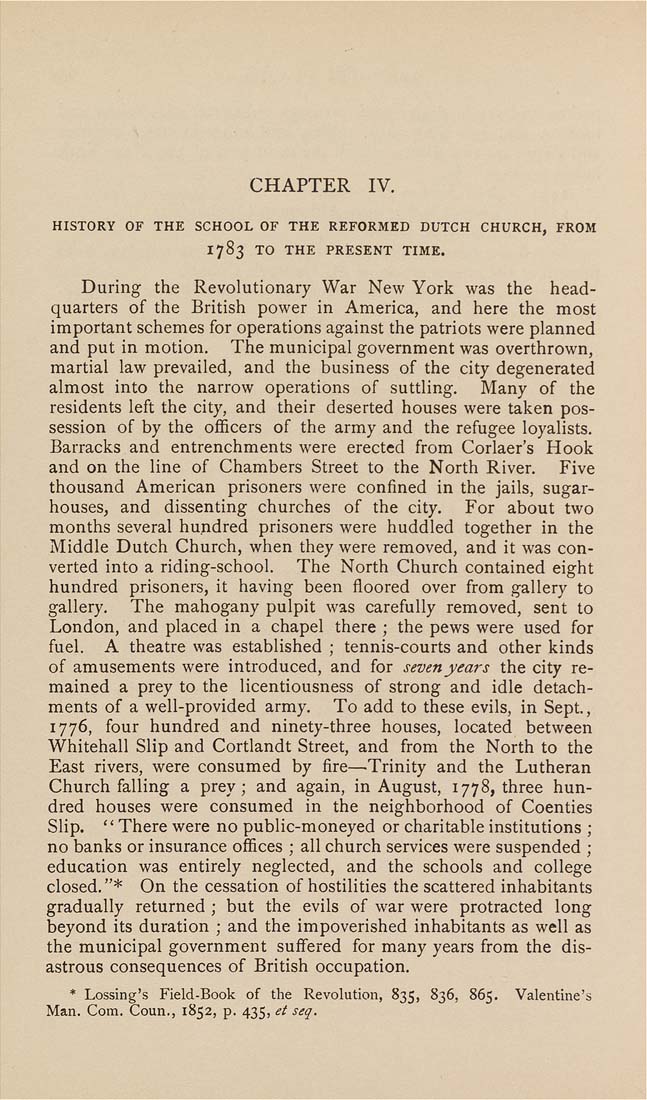CHAPTER IV.
HISTORY OF THE SCHOOL OF THE REFORMED DUTCH CHURCH, FROM
1783 TO THE PRESENT TIME.
During the Revolutionary War New York was the head¬
quarters of the British power in America, and here the most
important schemes for operations against the patriots were planned
and put in motion. The municipal government was overthrown,
martial law prevailed, and the business of the city degenerated
almost into the narrow operations of suttling. Many of the
residents left the city, and their deserted houses were taken pos¬
session of by the officers of the army and the refugee loyalists.
Barracks and entrenchments were erected from Corlaer's Hook
and on the line of Chambers Street to the North River. Five
thousand American prisoners were confined in the jails, sugar-
houses, and dissenting churches of the city. For about two
months several hundred prisoners were huddled together in the
Middle Dutch Church, when they were removed, and it was con¬
verted into a riding-school. The North Church contained eight
hundred prisoners, it having been floored over from gallery to
gallery. The mahogany pulpit was carefully removed, sent to
London, and placed in a chapel there ; the pews were used for
fuel. A theatre was established ; tennis-courts and other kinds
of amusements were introduced, and for seven years the city re¬
mained a prey to the licentiousness of strong and idle detach¬
ments of a well-provided army. To add to these evils, in Sept.,
1776, four hundred and ninety-three houses, located between
Whitehall Slip and Cortlandt Street, and from the North to the
East rivers, were consumed by fire—^Trinity and the Lutheran
Church falling a prey; and again, in August, 1778, three hun¬
dred houses were consumed in the neighborhood of Coenties
Slip. "There were no public-moneyed or charitable institutions ;
no banks or insurance offices ; all church services were suspended ;
education was entirely neglected, and the schools and college
closed."* On the cessation of hostilities the scattered inhabitants
gradually returned ; but the evils of war were protracted long
beyond its duration ; and the impoverished inhabitants as well as
the municipal government suffered for many years from the dis¬
astrous consequences of British occupation.
* Lossing's Field-Book of the Revolution, 835, 836, 865. Valentine's
Man. Com. Coun., 1852, p. 435, et seq.
|








